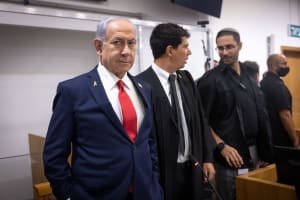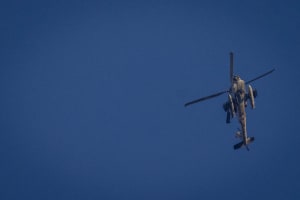US signals optimism about UN resolution for Gaza security force despite Russian & Chinese objections
Israel: New US draft has ‘uncomfortable’ clauses but Russian proposal is ‘bad’

U.S. Secretary of State Marco Rubio said on Wednesday that Washington was “optimistic” about advancing its draft of a UN resolution for a mandate for an International Stabilization Force (ISF) in Gaza, despite reports that China had raised objections and Russia had presented an alternative draft.
“We’re making good progress on the language of the resolution, and hopefully we’ll have action on it very soon. We don’t want to lose momentum on this,” Rubio told reporters on the sidelines of a G7 summit in Canada.
He stressed that the ISF “shouldn’t be a fighting force,” addressing concerns from several countries that indicated they would not send troops until Hamas has disarmed.
The “agreement that was signed and that all parties agreed to calls for the demilitarization of Hamas,” Rubio affirmed.
The UAE recently stated that it would not participate in the ISF under the current framework. Ynet News reported on Friday that the U.S. is pressuring several countries to join, but only Indonesia and Azerbaijan are currently considering sending troops.
Rubio reiterated that “as far as demilitarization is concerned, that’s a commitment Hamas made. That’s a commitment all of our partners on this deal made, and we expect that those countries… bring about pressure on Hamas to live up to that commitment.”
Meanwhile, U.S. efforts to anchor the powers of the ISF via a UN resolution in the Security Council are encountering difficulties.
On Thursday, the U.S. Mission to the United Nations (USUN) condemned “attempts to sow discord” and urged the council “to unite and move forward to secure the peace that is desperately needed.”
In its statement, the USUN noted that Washington began drafting a resolution in mid-October with input from Qatar, Egypt, Saudi Arabia, Turkey, and the United Arab Emirates, and began “good-faith negotiations on this draft” last week.
“We urge the Security Council to seize this historic moment to pave a path towards enduring peace in the Middle East by supporting this resolution.”
The statement came after the Associated Press (AP) reported that China and Russia, both of which hold veto power in the Security Council, demanded the clause calling for a “Board of Peace” be removed from the resolution.
The board would temporarily take control of Gaza's civil administration, according to U.S. President Donald Trump’s ceasefire plan.
According to the AP, the latest U.S. draft of the resolution still includes the Board of Peace while adding a slightly stronger commitment to Palestinian self-determination to appease demands by Arab nations.
Political officials told Ynet News that the draft now includes clauses that are “uncomfortable for Israel,” including a lack of an Israeli veto over which countries may contribute troops to the ISF. Still, the officials said the proposal largely aligns with the framework of an agreement that was approved by Jerusalem, even if it is “less favorable.”
The draft says that after reforms to the Palestinian Authority (PA) are “faithfully carried out and Gaza redevelopment has advanced, the conditions may be in place for a credible pathway to Palestinian self-determination and statehood,” according to AP.
“The United States will establish a dialogue between Israel and the Palestinians to agree on a political horizon for peaceful and prosperous coexistence,” it added.
The revised draft states that as the stabilization force “establishes control and stability,” the Israeli military will withdraw from the Gaza Strip. It emphasizes that this step will follow “standards, milestones and timeframes linked to demilitarization and agreed” upon by Israel, the stabilization force, the U.S., and other parties.
According to a Reuters report on Thursday, Russia presented its own draft resolution to challenge the United States.
Russia’s UN mission reportedly stated that it was “inspired by the US draft.”
However, Israeli officials described the proposal as “bad” while speaking to Ynet. It doesn’t include the U.S.-led Board of Peace, calls for the UN secretary-general to explore options for establishing the ISF, and includes clauses demanding full humanitarian access and a total rejection of demographic or territorial changes in Gaza.
Worse for Israel, it demands a commitment to the two-state solution and to creating territorial contiguity between Gaza and the West Bank under PA control.
A diplomat told The Times of Israel that the U.S. is now faced with the choice of putting its draft to a vote, risking its rejection; accepting significant amendments; or bringing together an alliance of nations ready to contribute to the reconstruction of Gaza without a UN resolution.
According to Ynet, however, a vote is tentatively scheduled for Monday, though postponement is still possible if no consensus is reached. Ynet also reported that U.S. diplomats remain optimistic that the council will approve the U.S. draft and that Russia and China will abstain, rather than veto it.

The All Israel News Staff is a team of journalists in Israel.
You might also like to read this:

















